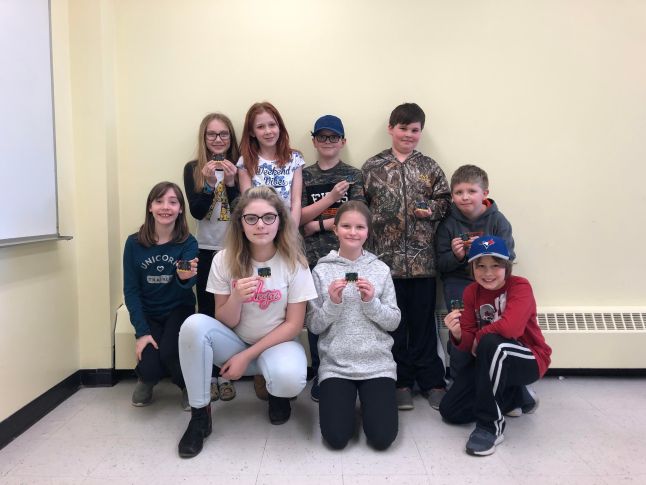This month, we’re waving a fond farewell to Sarah Sheerman-Chase, who has been part of Team Code Club for the last 5 years… but we’re delighted to welcome Lucia Manzitti, who is taking Sarah’s place as Head of Code Club UK and Ireland.
Goodbye from Sarah
The last five years working at Code Club have been a period of amazing personal and professional growth, and as I prepare to move on to a new adventure, here are just some of the highlights that I will remember:
Training for volunteers on FutureLearn
In 2017, I created a free online course for Code Club volunteers called Prepare to Run a Code Club. It was released in November after a year of writing, wrangling, and filming — one of the biggest challenges for me was learning how to read an autocue to make the video content!
More than 7000 people have taken part in the course so far, and I have absolutely loved reading and replying to the comments and questions from learners all over the world who are setting up clubs in their local communities.
Twitter chats
I’ve really enjoyed having the chance to interact with the thousands of passionate and enthusiastic volunteers in the Code Club community, and our regular Twitter chats have been my favourite way to communicate and share with them about teaching kids to code.
I learned how to construct a great question that gets people talking to one another online — and of course, not to schedule the chat at the same time as the Great British Bake Off.

Why not join us at the next global Code Club Twitter chat on Tuesday 16 July, 7pm? Follow #CodeClubChat and join the conversation.
Capturing Code Club on film
Some of my most memorable moments have been filming in various Code Clubs all around the country. I love the video What do kids say about Code Club?, which we created at Liverpool Library in 2016. Meeting the club members and hearing about how Code Club inspired them was wonderful.
It’s been an absolute privilege to work with the incredibly smart, talented, and funny people in the Code Club team and community. Thank you to you all for a remarkable journey!
Hello from Lucia
Lucia Manzitti joined our team on 28 May, and she will be focussing on the growth of our Code Club UK and Ireland programme, including engagement of volunteers.
I am so excited to be joining the Code Club team at the Raspberry Pi Foundation, and I look forward to getting to know our community of volunteers and educators over the next few months!
– Lucia Manzitti, Head of Code Club UK and Ireland
Lucia has previously worked on integrating creative education programmes in primary and secondary schools all around the UK, and on nurturing school communities through social media. She loves colourful art exhibitions and walking the narrow streets of Istanbul.
If you want to connect with the Code Club team, drop us a line at hello@codeclub.org, or reach out to us on social media @CodeClub.









You must be logged in to post a comment.